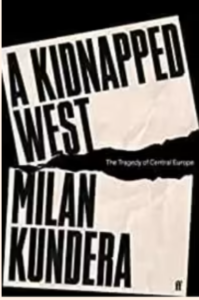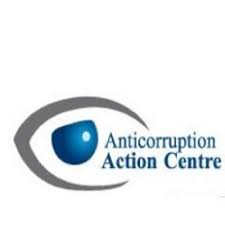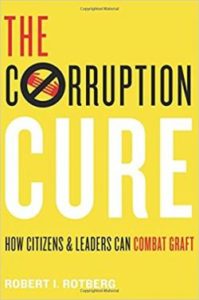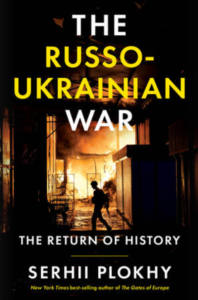Today, for Putin and the many Russians who see things the way he does, the West, however defined, is the enemy and always has been, notes Margaret MacMillan, Oxford University Professor Emeritus of International History and the author of War: How Conflict Shaped Us and The War That Ended Peace: The Road to 1914. Ukraine was being seduced by Western materialism and decadence and needed to be saved and restored to its proper family. And another motive was in play: if liberalism and democracy took root in Ukraine, as appeared to be happening, those dangerous forces might start to infect Russian society, too.
 Europe and the west are synonymous in Milan Kundera’s A Kidnapped West: in fact, Europe is another name for the Enlightenment’s rationalist tradition, says Ivan Krastev, chairman of the Center for Liberal Strategies in Sofia, Bulgaria. Kundera sees the cold war confrontation between Europe and Russia not as ideological battle but a civilisational one….. Communism was for him a fulfilment rather than a deviation of Russian history.
Europe and the west are synonymous in Milan Kundera’s A Kidnapped West: in fact, Europe is another name for the Enlightenment’s rationalist tradition, says Ivan Krastev, chairman of the Center for Liberal Strategies in Sofia, Bulgaria. Kundera sees the cold war confrontation between Europe and Russia not as ideological battle but a civilisational one….. Communism was for him a fulfilment rather than a deviation of Russian history.
Diverging views of the west explain the gap between how Russia’s invasion is perceived in the west and in much of the rest of the world The problem with this otherwise insightful and compelling argument, judged from a distance of four decades, is twofold, he writes for The Financial Times:
- First, in today’s west, feelings are eagerly promoted “to the rank of value and truth” — to deploy Kundera’s dismissal of the novels of Dostoyevsky, which he confesses to finding irritating and alien in comparison to Enlightenment philosophers — and rationalism is viewed with suspicion.
- And secondly, Kundera’s insistence that “civilisation” exists only in the singular and that it is another name for the Enlightenment does not travel well outside of Europe. It is the inability of eastern Europeans to view the west as colonial power, and most non-western nations to view the west as anything but a colonial power, that explains the stunning gap between how Russia’s invasion is perceived in the west and in much of the rest of the world.
 The fate of the Axis powers after World War II offers at least hope that the Russia of today may one day be as distant a memory as is the Germany of 1945, Macmillan writes for Foreign Affairs:
The fate of the Axis powers after World War II offers at least hope that the Russia of today may one day be as distant a memory as is the Germany of 1945, Macmillan writes for Foreign Affairs:
For Ukraine, there is the promise of better days if the war can be wound down favorably for it, with the country recovering much of its lost eastern territories and its Black Sea coast, as well as being admitted to the EU. But if that does not happen and the West does not make a sustained effort to help Ukraine rebuild—and if Western leaders are determined to treat Russia as a permanent pariah—then the future for both countries will be one of misery, political instability, and revanchism.
If liberalism & democracy took root in #Ukraine, as appeared to be happening, #Putin feared those dangerous forces might start to infect Russian society, too, Margaret Macmillan writes @ForeignAffairs. https://t.co/ucNg2GzsH9
— Democracy Digest (@demdigest) June 12, 2023
 While Ukraine needs a decisive victory in battle, the war for its future also hinges on its ability to overhaul governance and stamp out corruption, adds Fergus Drake, CEO of Crown Agents, a non-profit development group. The UK can lead the charge by rallying donor governments, the development community and relevant private sector players to pursue three strategic actions, he writes for The FT:
While Ukraine needs a decisive victory in battle, the war for its future also hinges on its ability to overhaul governance and stamp out corruption, adds Fergus Drake, CEO of Crown Agents, a non-profit development group. The UK can lead the charge by rallying donor governments, the development community and relevant private sector players to pursue three strategic actions, he writes for The FT:
- First, donor governments must give credit where it is due. Ukraine’s efforts to improve governance deserve endorsement. The transformation of the country’s public health procurement system demonstrates how rooting out corruption can save money and lives. By 2014, government auditors estimated that Ukraine was overpaying for medicines by 40 per cent. This money was in effect diverted from the taxpayer to a rent-seeking oligopoly. To break the cycle, Ukraine’s health ministry engaged international partners — including Unicef, the UN Development Programme and Crown Agents (which I lead) — to help design and implement a new procurement system. ….
- Second, governments need to recognise Ukraine’s progress with more than just a pat on the back. One of the principal threats to both the war efforts and future reconstruction is apathy taking hold in western electorates, whose backing ultimately underwrites the funding Ukraine needs to defend itself and eventually rebuild. This means allied governments have work to do on the home front: communicating the progress Ukraine has made in combating corruption and reassuring their publics that reconstruction funds will be well spent. Thankfully, the data since 2014 backs this up. ….
-
 Finally, financial support for reconstruction must be paired with training, capability building and sharing the technical knowhow to keep Ukraine’s reforms on track. At the URC, the focus is on private sector engagement and “unity, diversity and delivery”. But we must also continue working through government, and with the scrutiny provided by a robust civil society, to help Ukraine build ever-improving governance structures.
Finally, financial support for reconstruction must be paired with training, capability building and sharing the technical knowhow to keep Ukraine’s reforms on track. At the URC, the focus is on private sector engagement and “unity, diversity and delivery”. But we must also continue working through government, and with the scrutiny provided by a robust civil society, to help Ukraine build ever-improving governance structures.
To be fair, the war has boosted social trust in Ukraine. The politically influential tycoons who blighted the country’s development have been sidelined. Patriotism is a great antidote to corruption. But what happens in peacetime is another matter, adds CEPA’s Edward Lucas:
“It’s our turn to eat” was a catchphrase in South Africa after the fall of the apartheid system. It was easy to see why the hard-bitten veterans of the liberation struggle felt they should enjoy the fruits of victory. But the pervasive clientelism and favoritism that resulted, on top of the crony capitalism of the previous regime, proved fatal for the country’s chances.
Ukraine is fighting for the values of the democratic world against a totalitarian regime. But should its championing of democracy extend to parliamentary elections in wartime? CEPA’s Elena Davlikanova asks.
 Currently, the idea of elections in fall 2023 has little support in Ukraine. President Volodymyr Zelenskyy insists he will wait until martial law is lifted, but it is hard to predict what might happen if a war of attrition lasts beyond the March 2024 date scheduled for Ukraine’s presidential elections, or even until November next year.
Currently, the idea of elections in fall 2023 has little support in Ukraine. President Volodymyr Zelenskyy insists he will wait until martial law is lifted, but it is hard to predict what might happen if a war of attrition lasts beyond the March 2024 date scheduled for Ukraine’s presidential elections, or even until November next year.
The media continues to misunderstand and under-estimate Russia’s capacity for violence and chaos. Because many people writing about the war, and even making decisions about how to react, neither have the historical nor local knowledge to truly appreciate Russia’s motivations, Jonathan Fink writes for the Silicon Curtain Podcast. He lists the top 25 interviews on Silicon Curtain Podcast conducted with Ukrainian, Russian, and Western experts that best understand Russia’s actions, and can provide the historical and psychological detail to try and make sense of it.
Keir Giles – https://youtu.be/ZbHLrH9Q_E4
2. Peter Pomerantsev – https://youtu.be/bIFrJXly9QY
3. Sir Richard Shirreff – https://youtu.be/UMi1Y3iF710
4. Fiona Hill – https://youtu.be/maBUKuJmQ4M
5. Volodymyr Yermolenko – https://youtu.be/v4y-l6jsJeA
6. Mark Hertling – https://youtu.be/JHbVVtRaoFE
7. John Sweeney – https://youtu.be/ElS2J4DHbXE
8. Edward Lucas – https://youtu.be/Qcfyu_dwHEo
9. Mark Galeotti – https://youtu.be/aG1ee699olw
10. Anna Danylchuk – https://youtu.be/5AenntkSxIs
11. Operator Starsky – https://youtu.be/ABIIyNa1AOk
12. Ben Hodges – https://youtu.be/gpzfEVhdNp0
13. Vlad Vexler – https://youtu.be/RDQ92lLLwyM
14. Ian Garner – https://youtu.be/j9l4PYBD0_o
15. Owen Matthews – https://youtu.be/1XbmVAaseGM
16. Yuri Felshtinsky – https://youtu.be/_Jhj4Z32e_Q
17. David Satter – https://youtu.be/G1U_gjuVoH0
18. Andrei Soldatov – https://youtu.be/FIGsPen5V3A
19.Oliver Bullough – https://youtu.be/Yck3rYN-GbE
20. Jade McGlynn – https://youtu.be/uc_ak2c4XX0
21. Marnie Howlett – https://youtu.be/-2iARWXykXQ
22. Dina Khapaeva – https://youtu.be/YfP5WWqusbA
23. Olga Tokariuk (above) – https://youtu.be/D5onDse6WJs
24. Aliona Hlivco – https://youtu.be/yGLUBCfTkD8
25. Anders Puck Nielsen – https://youtu.be/7kBsI-iiNeM







